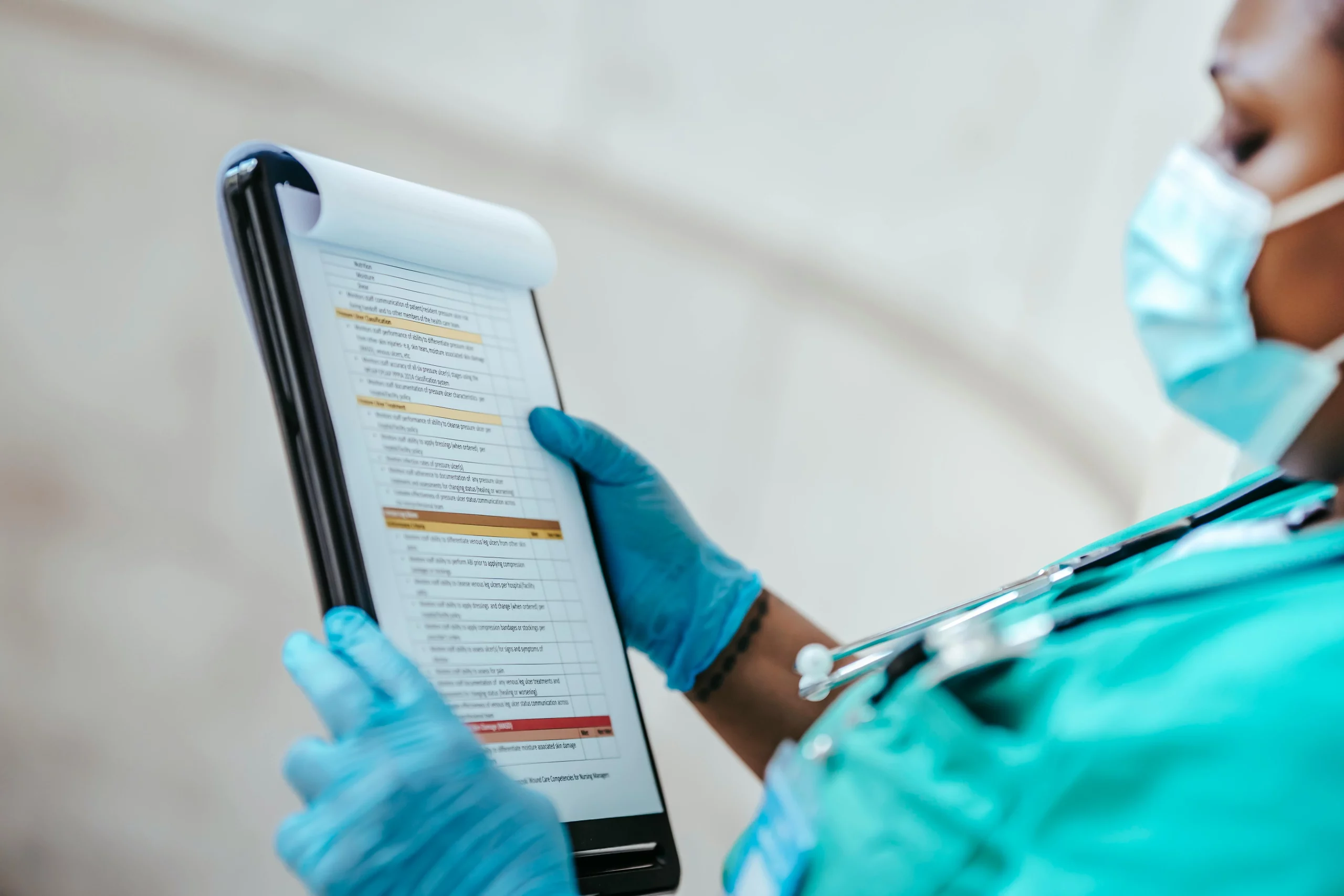What is a Respiratory Therapist?
A respiratory therapist (RT) is a licensed healthcare professional who specializes in assessing, treating, and managing patients with cardiopulmonary disorders and breathing difficulties. Respiratory therapists work under the supervision of physicians to administer respiratory treatments, therapies, and interventions, monitor patients’ respiratory status, and educate patients and their families about respiratory conditions, self-care techniques, and disease management strategies.
Respiratory Therapist Job Description
We are currently seeking dedicated and skilled respiratory therapists to join our dynamic respiratory care team. As essential members of our healthcare facility, successful candidates will play a pivotal role in providing specialized respiratory therapy services to patients with acute and chronic respiratory conditions, ensuring optimal respiratory function and improved quality of life.
As a respiratory therapist, you will have the opportunity to work with patients of all ages across various healthcare settings, including hospitals, clinics, home care, and long-term care facilities, and collaborate with interdisciplinary healthcare teams to deliver comprehensive respiratory care services.
The ideal candidates will possess strong clinical skills, critical thinking abilities, and a commitment to delivering high-quality patient care.
What Does a Respiratory Therapist Do?
- Assessment and Evaluation: Conduct comprehensive respiratory assessments and diagnostic tests, including spirometry, arterial blood gas analysis, and pulmonary function testing, to evaluate patients’ respiratory status, lung function, and oxygenation levels, and to diagnose and monitor respiratory conditions and diseases.
- Analyze assessment findings, medical history, and diagnostic data to develop individualized respiratory care plans, treatment goals, and intervention strategies that address patients’ respiratory needs, optimize lung function, and improve oxygenation and ventilation.
- Collaborate with physicians, nurses, and other healthcare professionals to interpret assessment results, formulate differential diagnoses, and develop interdisciplinary care plans that integrate respiratory therapy interventions into patients’ overall treatment regimens. Treatment and Intervention:
- Administer respiratory treatments and therapies, such as oxygen therapy, aerosolized medications, chest physiotherapy, and mechanical ventilation, according to physicians’ orders and established protocols, ensuring safe, effective, and evidence-based respiratory care delivery.
- Monitor patients’ respiratory status, vital signs, and response to therapy continuously, adjusting treatment modalities, parameters, and equipment settings as needed to optimize respiratory function, relieve respiratory distress, and prevent complications.
- Educate patients and their families about respiratory conditions, treatment options, medication administration techniques, smoking cessation strategies, and lifestyle modifications, providing culturally sensitive, patient-centered education to promote self-management, adherence, and respiratory health.
- Documentation and Recordkeeping: Maintain accurate, timely, and comprehensive documentation of respiratory assessments, treatment plans, interventions, and patient responses in electronic health records (EHRs) or paper charts, adhering to regulatory standards, documentation guidelines, and professional best practices.
- Document and report adverse reactions, complications, and changes in patients’ respiratory status promptly to physicians, nurses, and other members of the healthcare team, ensuring timely communication, intervention, and follow-up to optimize patient outcomes and safety. Professional
- Development and Leadership: Engage in ongoing professional development, continuing education, and competency assessments to enhance clinical skills, stay current with advances in respiratory therapy practice, and maintain licensure, certification, and professional credentials as required by regulatory agencies and professional organizations.
- Participate in interdisciplinary team meetings, quality improvement initiatives, and research projects to promote excellence in respiratory care delivery, contribute to evidence-based practice, and advance respiratory therapy knowledge, skills, and standards of care.
How Much Do Respiratory Therapists Make?
Respiratory Therapists made a median salary of $70,540 in 2022. The best-paid 25% made $81,610 that year, while the lowest-paid 25% made $62,260.
Skill Requirements
- Clinical Expertise: Respiratory therapists must possess advanced clinical knowledge, skills, and competencies in respiratory therapy practice, including assessment, treatment, and management of acute and chronic respiratory conditions, to provide safe, effective, and evidence-based respiratory care services.
- Critical Thinking and Problem-Solving: Respiratory therapists should demonstrate strong critical thinking, clinical judgment, and problem-solving abilities to analyze complex respiratory issues, interpret diagnostic data, and develop individualized care plans and treatment strategies that address patients’ unique needs and goals.
- Interpersonal and Communication Skills: Effective communication and interpersonal skills are essential for respiratory therapists to interact with patients, families, caregivers, and interdisciplinary healthcare team members, fostering therapeutic relationships, facilitating patient education, and promoting collaboration and teamwork in the delivery of respiratory care.
- Empathy and Compassion: Respiratory therapists must exhibit empathy, compassion, and sensitivity in caring for patients with respiratory conditions, understanding their physical, emotional, and psychosocial needs, and providing emotional support, reassurance, and encouragement to promote patient comfort, trust, and well-being.
- Professionalism and Ethics: Respiratory therapists should uphold professional standards of practice, ethical principles, and regulatory requirements in respiratory therapy care, including patient confidentiality, informed consent, autonomy, beneficence, nonmaleficence, and justice, to ensure patient-centered, compassionate, and ethical respiratory care delivery.
- Continuous Learning and Professional Development: Respiratory therapists are encouraged to engage in continuous learning, continuing education, and professional development activities to enhance clinical competencies, expand knowledge of evidence-based practice, and stay current with advances in respiratory therapy research, technology, and healthcare policy.
Example KPIs for a Respiratory Therapist
- Patient Respiratory Status and Function: This KPI measures respiratory therapists’ effectiveness in assessing and improving patients’ respiratory status, lung function, and oxygenation levels through respiratory assessments, diagnostic tests, and therapeutic interventions, using objective measures, clinical outcomes, and patient-reported data to evaluate respiratory therapy effectiveness and patient progress.
- Treatment Adherence and Compliance: This KPI evaluates respiratory therapists’ success in promoting treatment adherence and compliance among patients with respiratory conditions, including medication adherence, oxygen therapy compliance, smoking cessation rates, and lifestyle modifications, using patient education, counseling, and motivational interviewing techniques to enhance patient engagement and self-management.
- Clinical Efficiency and Productivity: This KPI assesses respiratory therapists’ efficiency and productivity in managing respiratory caseloads, scheduling patient appointments, documenting clinical encounters, and meeting productivity targets, optimizing workflow processes, patient throughput, and resource utilization while maintaining high-quality respiratory care delivery.
- Interdisciplinary Team Collaboration: This KPI measures respiratory therapists’ collaboration, communication, and teamwork with interdisciplinary healthcare team members, including physicians, nurses, respiratory therapists, and other allied health professionals, to coordinate patient care, interdisciplinary referrals, and discharge planning, ensuring continuity of care and holistic patient management.
- Professional Development and Leadership: This KPI evaluates respiratory therapists’ engagement in professional development activities, continuing education programs, and leadership initiatives to enhance clinical expertise, advance respiratory therapy practice, and promote leadership skills and professional growth in the field of respiratory therapy.
How Can Glider AI Help You with Hiring a Respiratory Therapist?
Glider’s recruitment platform is designed to prioritize competency over credentials, enabling organizations to assess candidates’ skills objectively and efficiently. Utilize Glider AI Skill Intelligence™ to streamline the hiring process, identify top-quality respiratory therapist candidates, and ensure a mobile-first, candidate-friendly experience.
Glider AI’s Unique Features
- Verify Medical Licenses
- Validate Hundreds of Medical, Clinical, and Technical Skills
- Ensure Hiring Compliance
- Conversational Chatbot for Talent Screening
- Powerful candidate analytics
- Streamline Healthcare Hiring with AI and Automation
Go ahead and spotlight your Respiratory Therapist with Glider AI today!
Schedule a Demo or contact us at info@glider.ai




